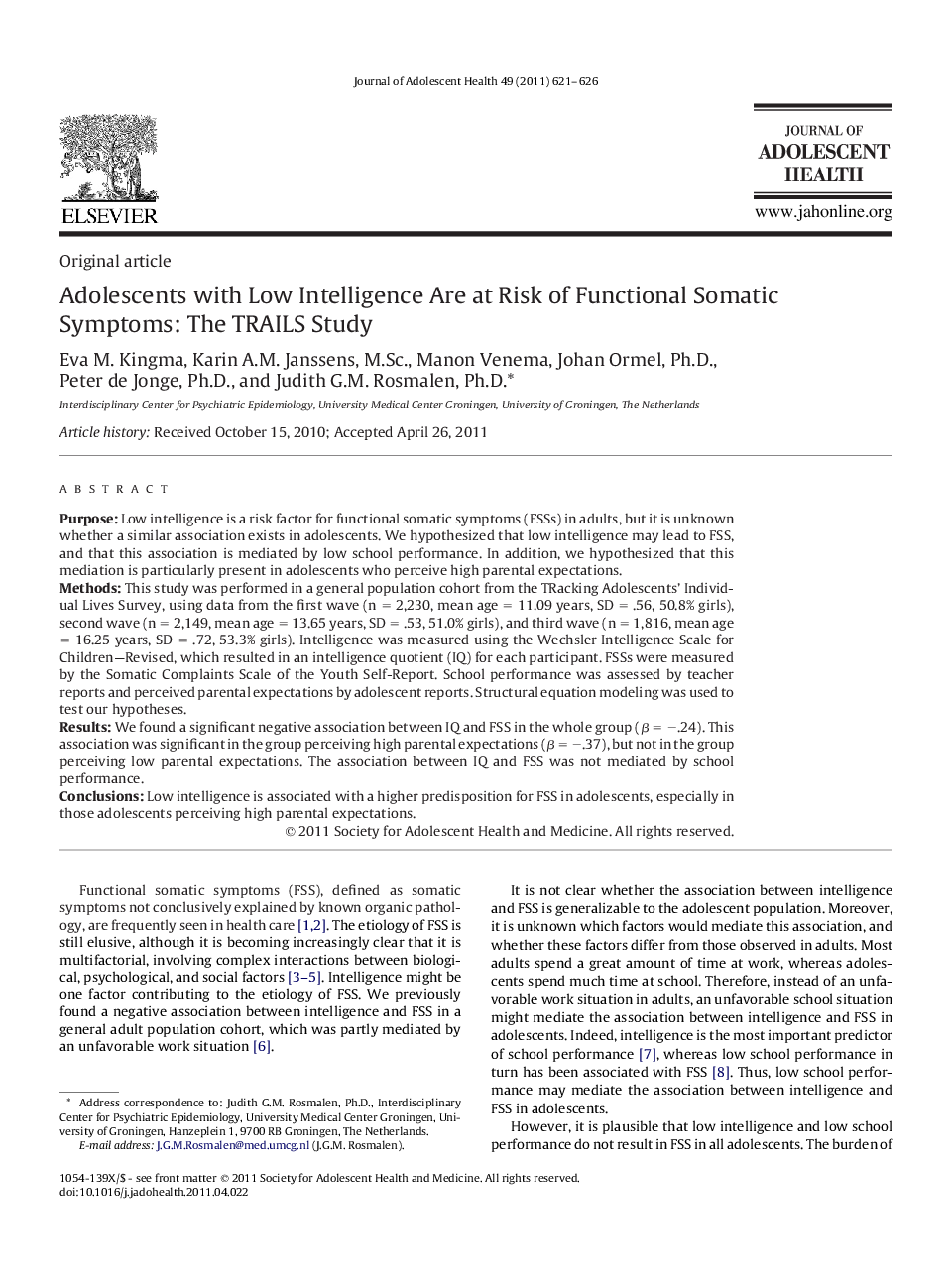| Article ID | Journal | Published Year | Pages | File Type |
|---|---|---|---|---|
| 1078819 | Journal of Adolescent Health | 2011 | 6 Pages |
PurposeLow intelligence is a risk factor for functional somatic symptoms (FSSs) in adults, but it is unknown whether a similar association exists in adolescents. We hypothesized that low intelligence may lead to FSS, and that this association is mediated by low school performance. In addition, we hypothesized that this mediation is particularly present in adolescents who perceive high parental expectations.MethodsThis study was performed in a general population cohort from the TRacking Adolescents' Individual Lives Survey, using data from the first wave (n = 2,230, mean age = 11.09 years, SD = .56, 50.8% girls), second wave (n = 2,149, mean age = 13.65 years, SD = .53, 51.0% girls), and third wave (n = 1,816, mean age = 16.25 years, SD = .72, 53.3% girls). Intelligence was measured using the Wechsler Intelligence Scale for Children—Revised, which resulted in an intelligence quotient (IQ) for each participant. FSSs were measured by the Somatic Complaints Scale of the Youth Self-Report. School performance was assessed by teacher reports and perceived parental expectations by adolescent reports. Structural equation modeling was used to test our hypotheses.ResultsWe found a significant negative association between IQ and FSS in the whole group (β = −.24). This association was significant in the group perceiving high parental expectations (β = −.37), but not in the group perceiving low parental expectations. The association between IQ and FSS was not mediated by school performance.ConclusionsLow intelligence is associated with a higher predisposition for FSS in adolescents, especially in those adolescents perceiving high parental expectations.
